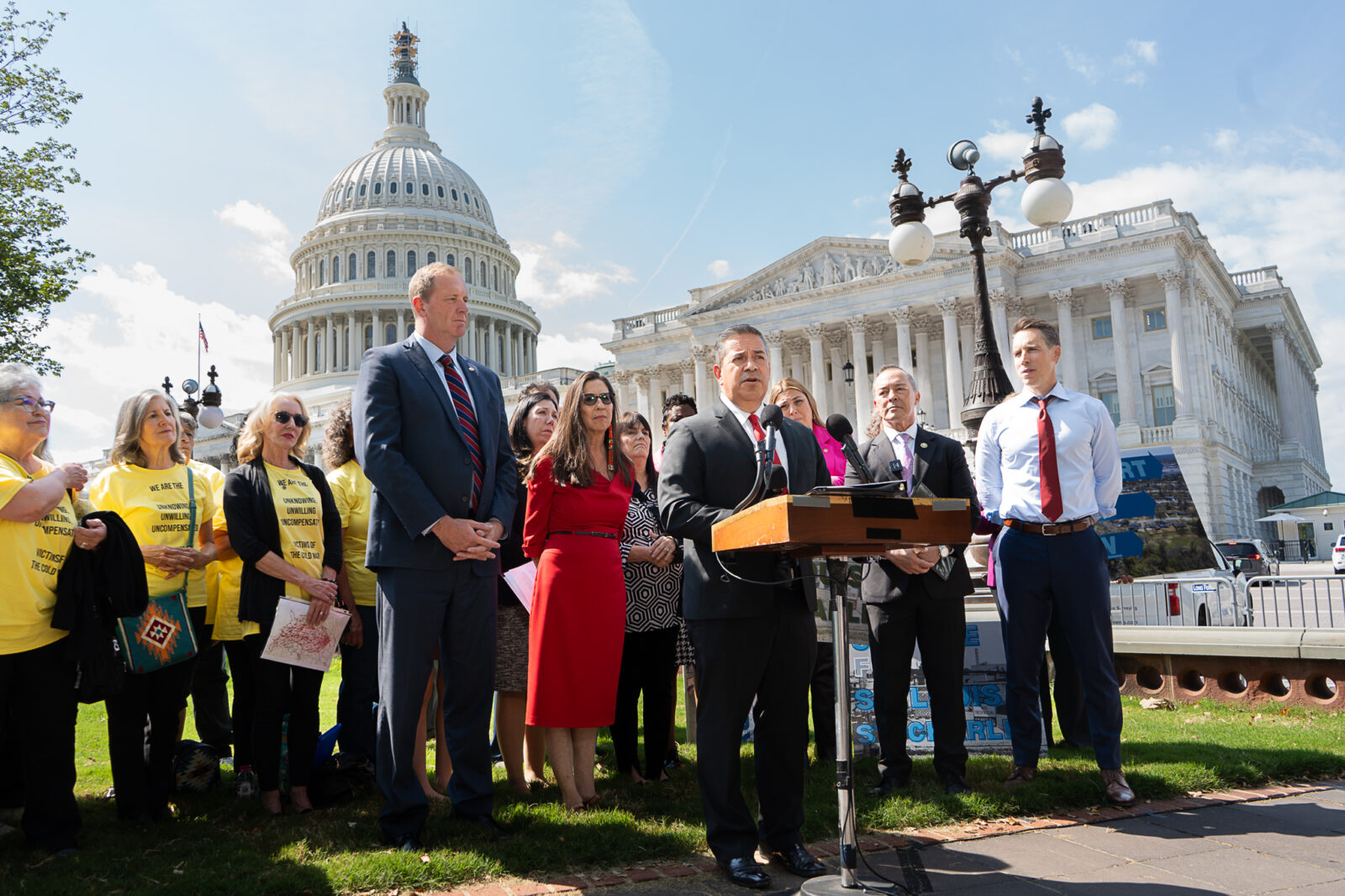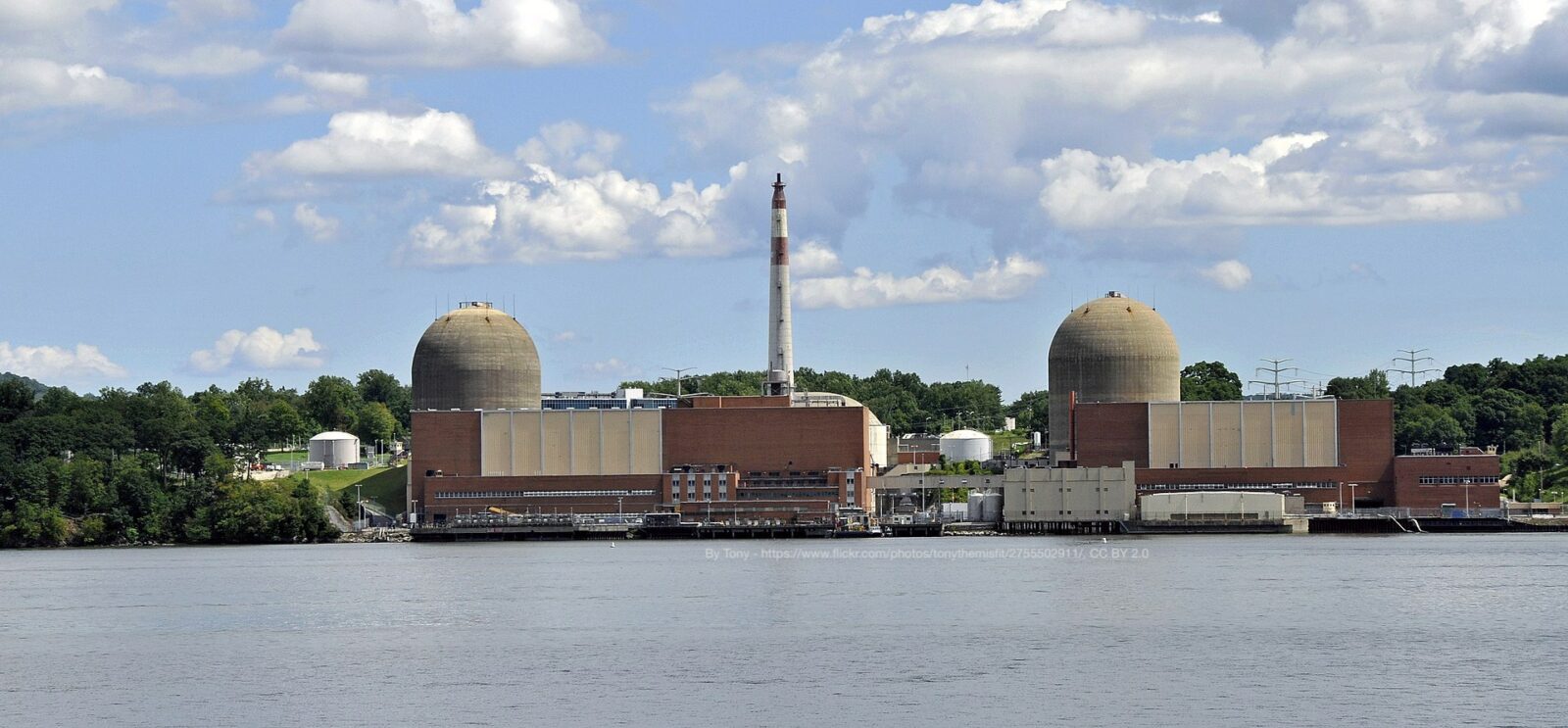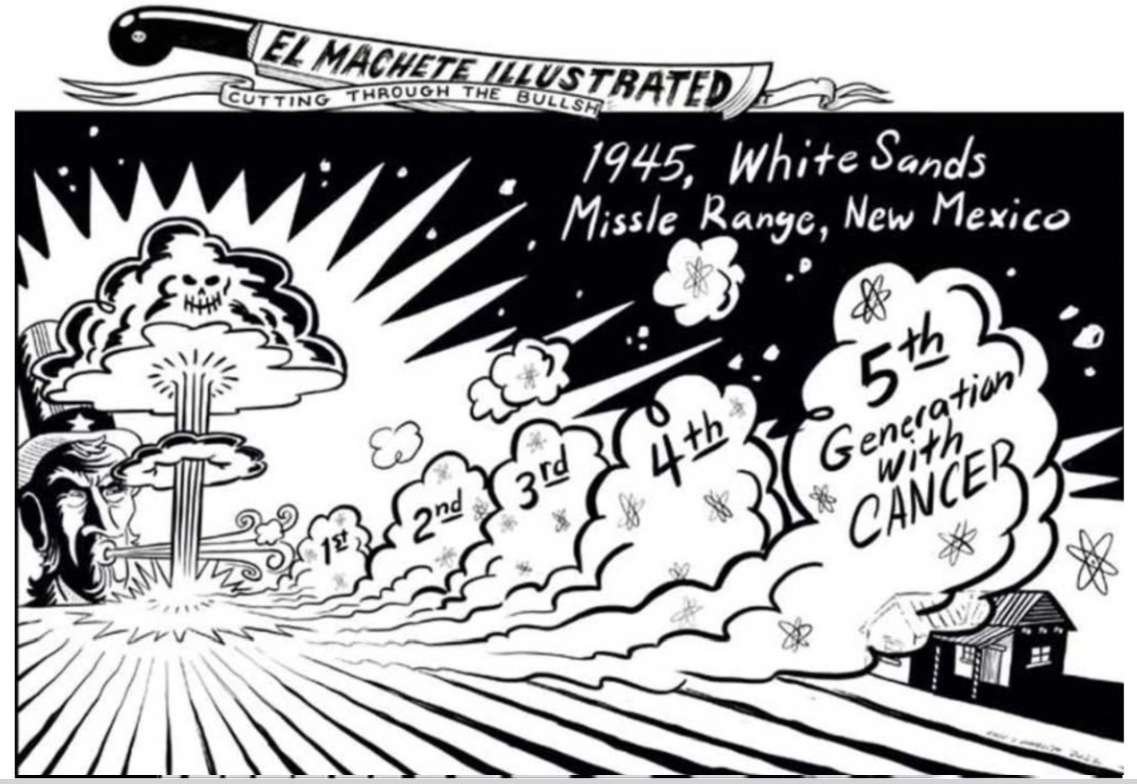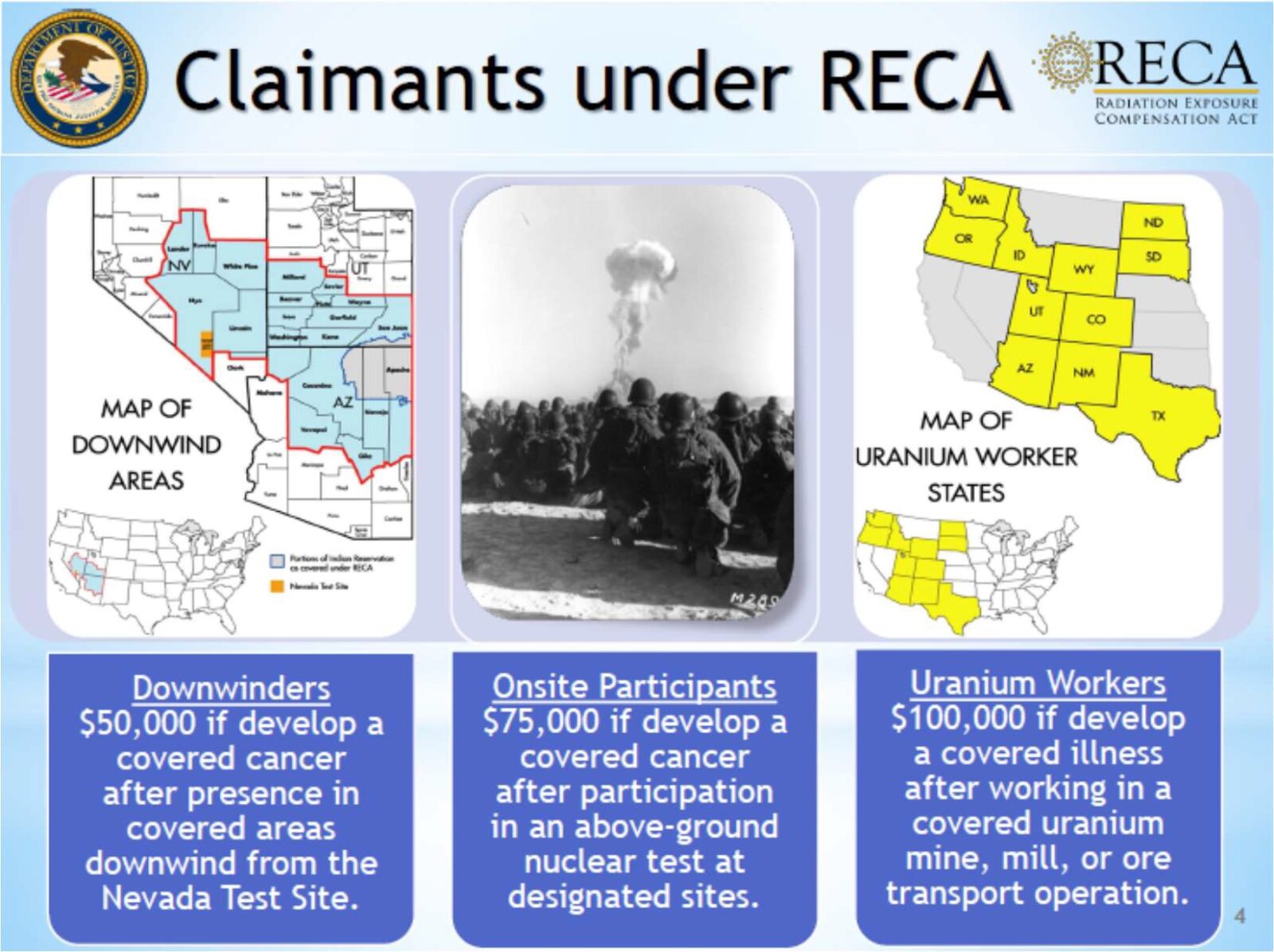Health Impacts
White House nuclear hypocrisy on EJ
In light of the White House’s hypocrisy in both supporting nuclear power while simultaneously claiming to care about Environmental Justice (EJ) in the context of addressing the climate crisis, Beyond Nuclear submitted the following comments to the White House Environmental Justice Advisory Council. June 18, 2024 To: The White House Environmental Justice Advisory Council (WHEJAC)…
Read MoreExpose or explode? Victims again of a nuclear conundrum
In a conundrum of their own making, Los Alamos National Laboratory (LANL) wants to vent radioactive tritium gas to surrounding communities — under-resourced communities that have already suffered from past exposures and are burdened by legacy contamination, some of it remaining hidden until recently. Currently, the tritium waste is stored in long-neglected containers, subject to…
Read MoreRadiation Exposure Compensation Act expires
The Radiation Exposure Compensation Act that provided financial compensation for atomic test downwinders in three states and pre-1971 uranium miners, expired on June 10 after attempts to extend as well as expand the bill to include more states and affected communities were killed by the Republican House leadership. Despite passing the Senate with bi-partisan support,…
Read MoreLegal clash over dumping ban in NY
An article in The New Lede delineates the legal struggle between the anti-dumping law passed in New York last August, and the lawsuit filed by company Holtec. Holtec payed a 5 million dollar fine to the neighboring state of New Jersey to avoid criminal prosecution, and wants to dump the radioactive isotope tritium into the…
Read MorePlutonium still endangers area around Rocky Flats
Recent air filter samples were found contaminated with plutonium from Rocky Flats in Colorado. The samples were taken after a gale-force wind event where dirt was visibly moving in the air. ” ‘Plutonium was unequivocally detected in the two …air filters… plutonium was detected in all six of the … samples.” There are trails, National…
Read MoreFREE Screening NOW: First We Bombed New Mexico May 17-19
First We Bombed New Mexico is the untold and tragic story of Trinity, the world’s first nuclear bomb. Register to view the film for free between May 17 and 19. Detonated in New Mexico before the bombing of Hiroshima, it is a story of government betrayal with tragic consequences. “Thousands of New Mexicans – mostly…
Read MoreRussian soldiers who invaded Ukraine in 2022 and occupied Chornobyl’s radioactive zone are dying
April 26, 2024. Thousands of Russian soldiers in the initial invasion of Ukraine on February 24, 2022 who were intent on taking Kyiv by force and occupation, only made it as close as the intensely radioactive zone of the April 26, 1986 Chornobyl nuclear catastrophe. They set up their camps and entrenched into the radioactive…
Read MoreUranium mining and increased disease
Research on uranium mine sites lead by Johnnye Lewis, Ph.D., University of New Mexico Health Sciences Center, College of Pharmacy, is summarized in this slide deck. Among the researchers’ conclusions: Substantial exposures to uranium and mixed metals in Indian Country — many linked to Cold War Weapons Development — create the “Perfect storm: DNA damage…
Read MoreSystemic cover-up: New book profiles radiation risks and scientists
The Scientists Who Alerted us to Radiation’s Dangers by Ian Fairlie, PhD and Beyond Nuclear’s Cindy Folkers, MS, has just been published by The Ethics Press. The book profiles 23 radiation scientists over the previous half-century or so, who revealed that radiation risks were higher than thought, but who were victimized by governments and the…
Read MoreContamiNATION: New report examines the unevenness of U.S. radiation compensation regime
Dave Lochbaum, former Director of the Nuclear Safety Project for the Union of Concerned Scientists (UCS), and a nuclear engineer by training, has published a new paper ContamiNATION: How the US Nuclear Weapons Program Harmed Thousands of Americans and Why Those Americans Had to Fight for Decades to Receive Compensation for that Undue Harm, examining…
Read More










